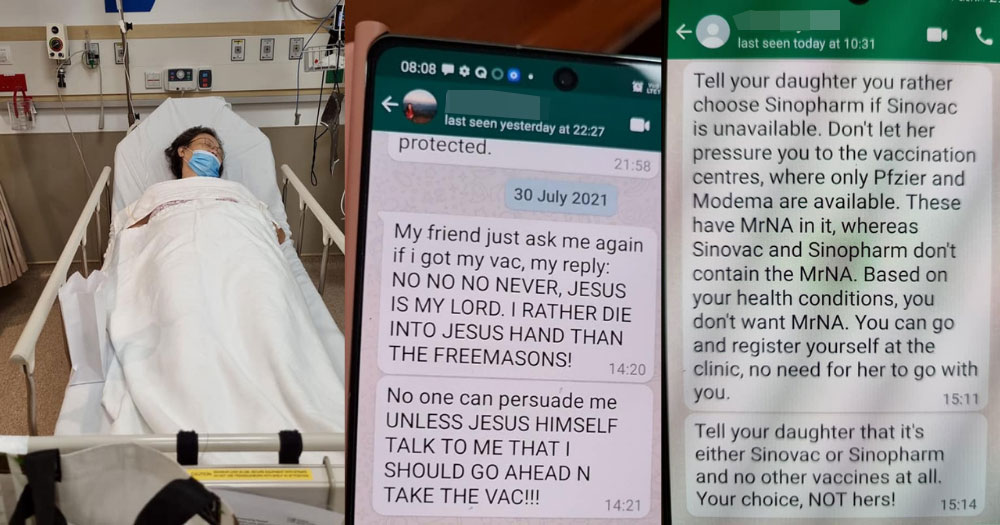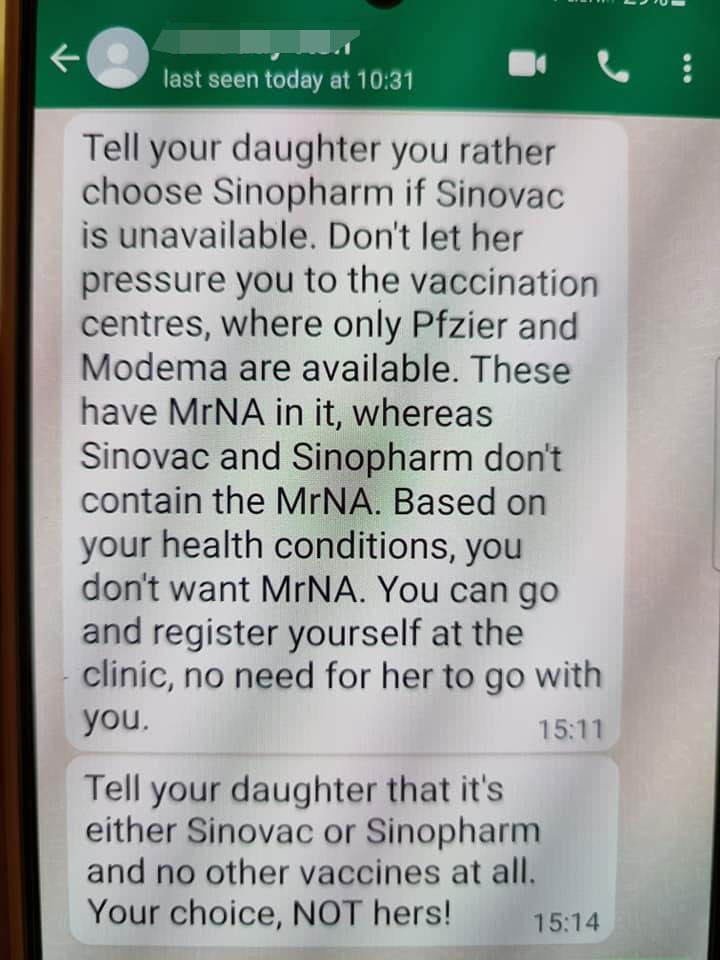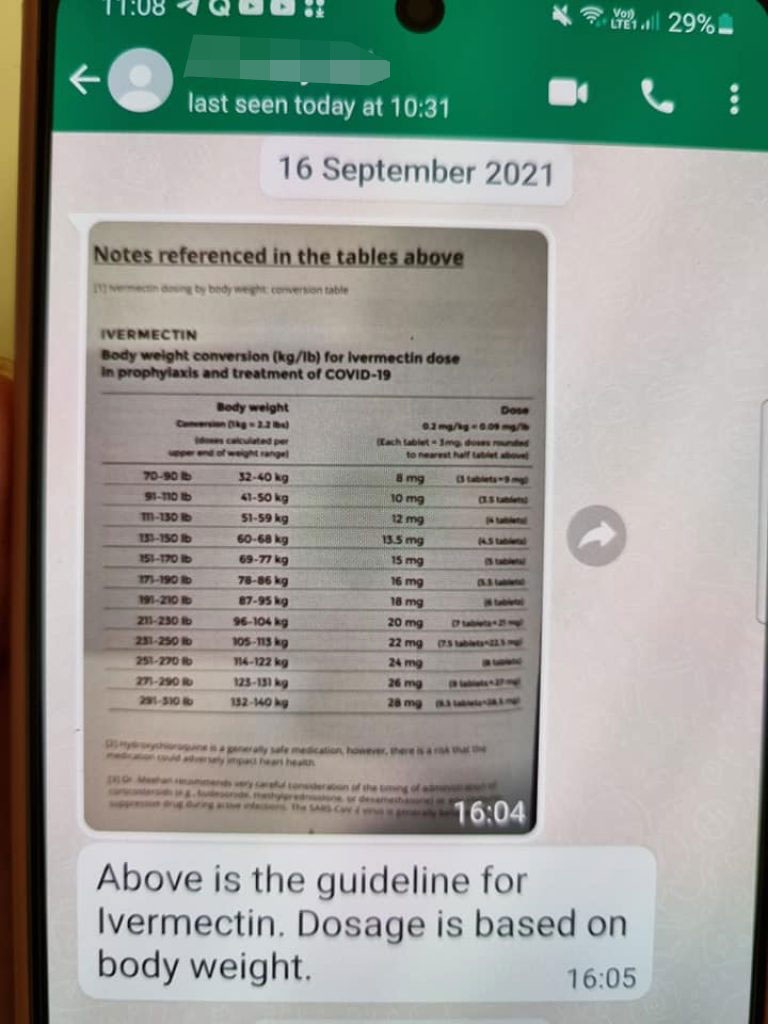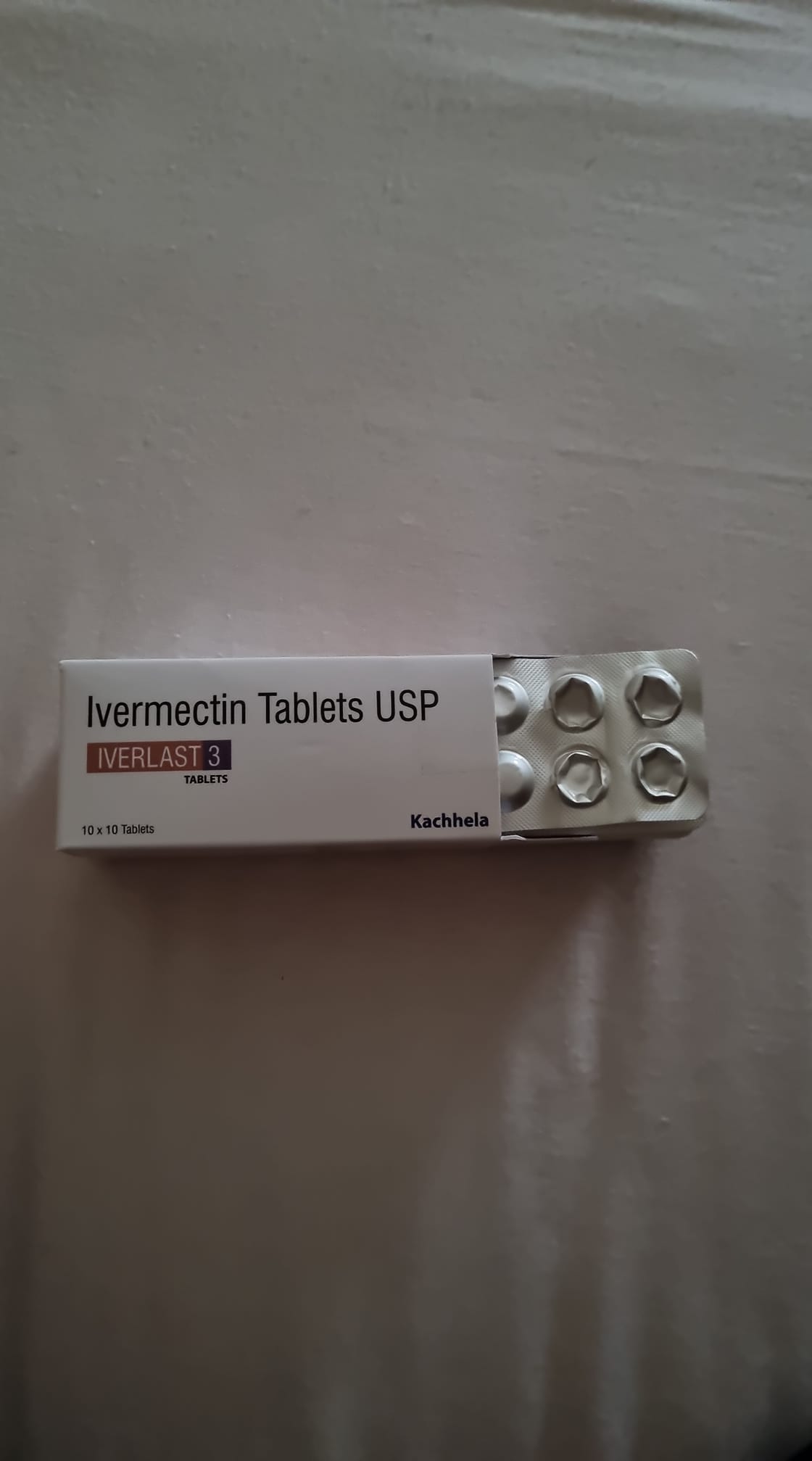- Joined
- Oct 3, 2016
- Messages
- 35,356
- Points
- 113
Woman in S'pore, allegedly influenced by church friends, takes ivermectin for Covid-19 & ends up in A&E
Her friends from the church also convinced her that mRNA vaccines are against their religion.Zi Shan Kow |

Follow us on Telegram for the latest updates: https://t.me/mothershipsg
A woman in Singapore has taken to Facebook to call out the irresponsible recommendation and use of parasitic treatment drug ivermectin for Covid-19 after her mother was hospitalised for taking it without proper doctor's prescription and advice.
The daughter, Vanessa Koh Wan Ling, shared in a Facebook post on Oct. 3 an account of what allegedly happened to her mother, and went as far as naming the people involved in procuring the drug and recommending its usage.
Admitted to A&E
According to the post, Koh's mother suffered from six side effects when she was admitted to the hospital, all of which are the result of consuming ivermectin.
The symptoms included vomiting, severe joint pain, and the inability to walk and stand.
Influenced by church friends
According to Koh, her mother was allegedly influenced to take ivermectin by two friends who attend the same church in Singapore.
In her post, she shared screen shots that allegedly showed her mother's conversations with the church friends.
Koh claimed the friends managed to convince her mother that taking mRNA vaccines was against their religion, and that "if they are allowed to take, Jesus would reach out to them directly" to register his approval.



Koh had registered her mother for the Sinopharm vaccine, which is an approved vaccine that is not mRNA based.
However, her mother's friends allegedly claimed that doing so was also taboo, and that her mother will not go to heaven after taking the second jab.
Encouraged to take ivermectin
The two friends also allegedly convinced Koh's mother that ivermectin can help to "purge out" the vaccine and Covid-19.
It was alleged that Koh's mother gained access to the drug from another church acquaintance, who was also named, and was provided instructions on the drug dosage.



Strained mother and daughter relationship
Koh said she could not get through to her mother, even though her mother's choice to take ivermectin "didn't make sense".
Caught between a rock and a hard place -- either cut ties with her mother or let her mother have her way -- as her mother would still have consumed ivermectin, the only silver lining was that Koh could still inform doctors about the drugs ingested, which would inform treatment options.

As a result of the hospitalisation, the daughter warned others not to "feel that [they] know better than the doctors because of Google".
"Discuss with your family, no matter how you feel your good friends are better because they are more pious," she advised others in her post.
This was because, the daughter wrote, the person sitting outside the A&E was not the church friends, but her.
Use of ivermectin for Covid-19
Ivermectin is a medication used to treat parasite infestations in animals and humans.
Recently, poorly-supported claims of its effectiveness in preventing and treating Covid-19 in humans have caused a surge in demand for the drug.
In Singapore, ivermectin is only approved for the treatment of parasitic worm infections.
The Health Sciences Authority (HSA) in Singapore have warned that it will take strong enforcement action against those who illegally sell and supply it.



